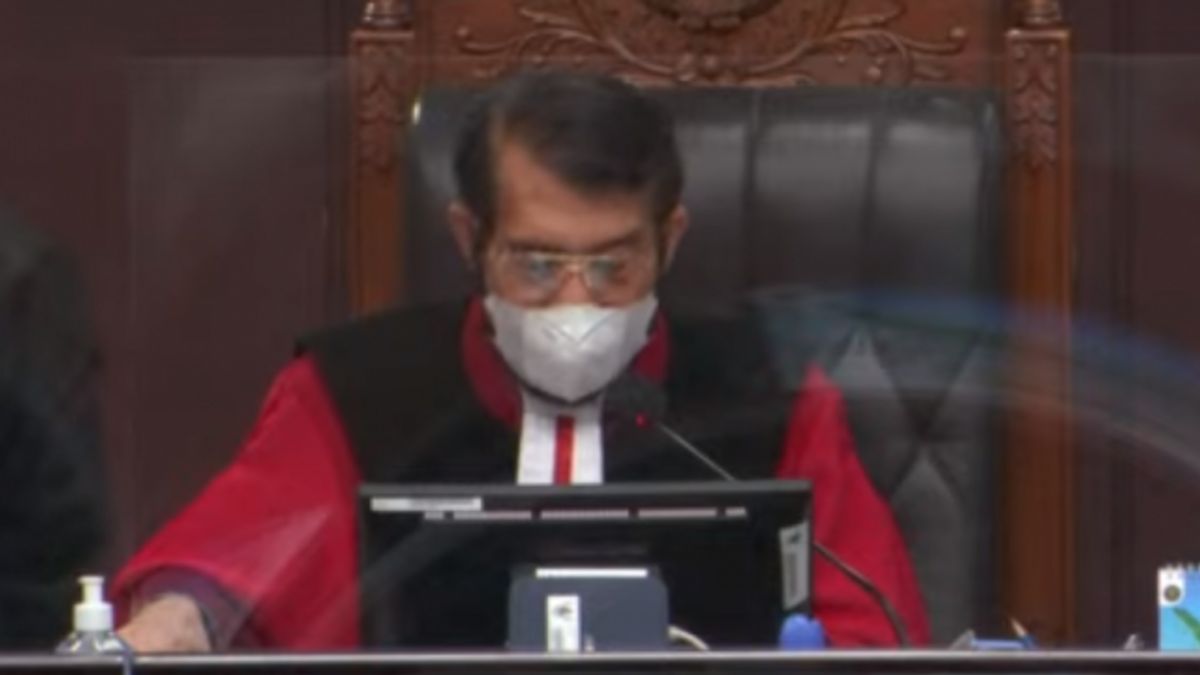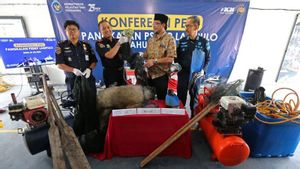JAKARTA - The Constitutional Court (MK) declared Article 293 paragraph (2) of the Criminal Code (KUHP) unconstitutional because complaints of child molestation cases which are regulated can only be made by victims, parents, guardians or their proxies should also do so.
"The norm provisions of Article 293 paragraph (2) of the Criminal Code are contrary to the 1945 Constitution of the Republic of Indonesia and have no binding legal force as long as it is not interpreted as 'complaints can be made not only by the victim, but also by the victim. parents, guardians, or their proxies," said Chief Justice of the Constitutional Court Anwar Usman when reading the verdict which was broadcast live on the YouTube channel of the Indonesian Constitutional Court, monitored from Jakarta, Wednesday, December 14.
Before the verdict was read out, Constitutional Justice Saldi Isra had conveyed that the Constitutional Court considered that, in order to overcome the limitations possessed by children who were victims of sexual abuse, in addition to being reported or complained by the child in question, reports or complaints could also be made by parents, guardians, or power.
The decision partially granted the application Number 21/PUU-XIX/2021 submitted by two Indonesian Christian University students, Leonardo Siahaan as applicant I and Fransiscus Arian Sinaga as applicant II.
In the petition for reviewing the material of the Criminal Code against the 1945 Constitution, the petitioners asked the Court to examine Article 288 of the Criminal Code with the phrase "not yet time for marriage", Article 293 of the Criminal Code with the phrase "not yet mature", and Article 293 paragraph (2) of the Criminal Code against the 1945 Constitution.
Of the three petitions, the Constitutional Court decided to partially grant the petitioners' petition, namely regarding Article 293 paragraph (2) of the Criminal Code which contradicts the 1945 Constitution.
Article 293 of the Criminal Code paragraph (1) reads that whoever by giving or promising money or goods, abuses the authority that arises from a relationship of circumstances, or by misdirection, deliberately moves a minor and good in behavior to commit or allow obscene acts to be carried out with him, even though regarding immaturity, it is known or should be suspected, is threatened with a maximum imprisonment of five years. Then in Article 293 of the Criminal Code paragraph (2), it is stated that prosecution is carried out only on the complaint of the person against whom the crime was committed.
The petitioners assessed that Article 293 paragraph (2) of the Criminal Code does not guarantee protection for victims of sexual abuse, especially children, so that it is contrary to the constitutional rights of victims as contained in Article 28D of the 1945 Constitution concerning one of the human rights, namely obtaining recognition, guarantees, protection and protection. fair legal certainty and equal treatment before the law.
There is also Article 28G of the 1945 Constitution which regulates the protection of the honor and dignity of victims. According to the petitioners, victims who experience psychological problems certainly do not dare to report the complainant to the authorities.
Thus, the petitioners considered that Article 293 of the Criminal Code paragraph (2) prevented the victim from prosecuting the perpetrator.
Based on this description, the Constitutional Court ruled that Article 293 paragraph (2) of the Criminal Code has created legal uncertainty.
"The arguments of the petitioners regarding Article 293 paragraph (2) of the Criminal Code have created legal uncertainty as stated in Article 28D paragraph (1) of the 1945 Constitution and have eliminated the right to protect oneself, family, honor and dignity as stipulated in Article 28G paragraph (1 ) The 1945 Constitution is legally grounded in part," said Constitutional Justice Saldi Isra as quoted by Antara.
The Constitutional Court also ordered the publication of the decision in the State Gazette of the Republic of Indonesia as appropriate and confirmed that it had rejected the other petitions from the petitioners.
The English, Chinese, Japanese, Arabic, and French versions are automatically generated by the AI. So there may still be inaccuracies in translating, please always see Indonesian as our main language. (system supported by DigitalSiber.id)













